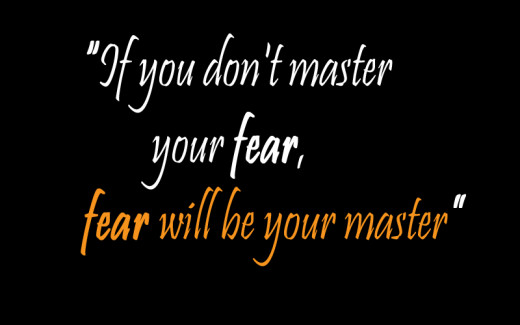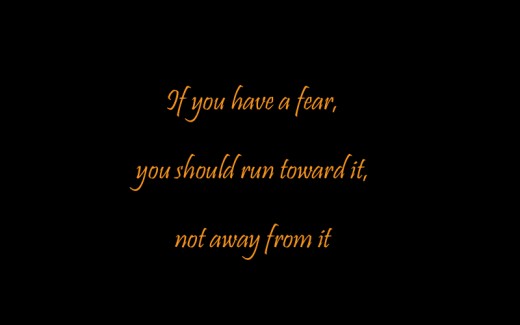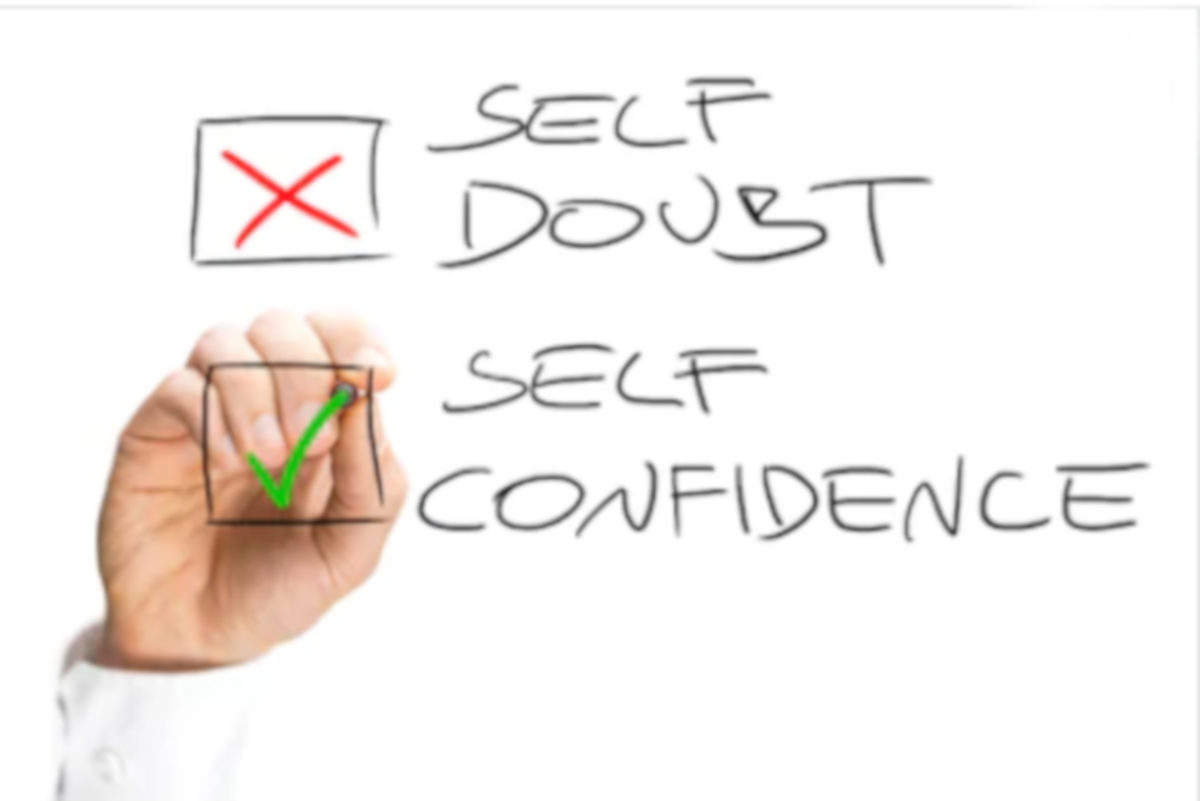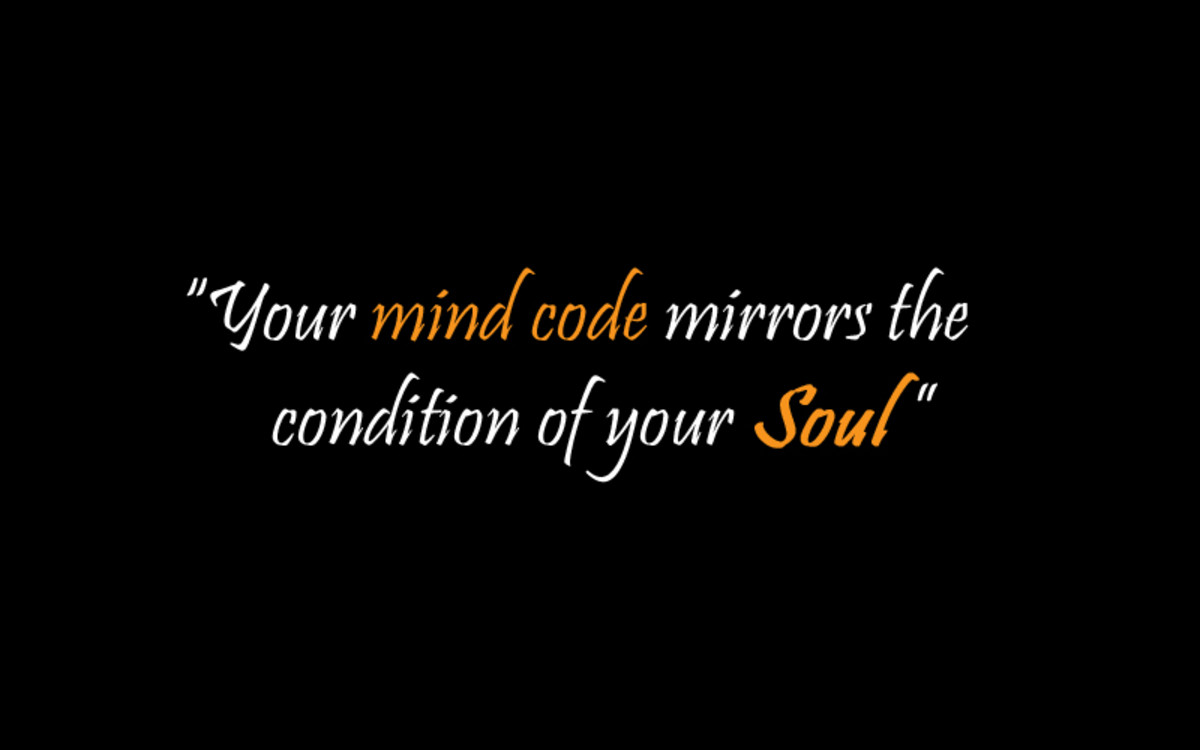FEAR: 7 Tips on Mastering Fear
Fear will master you, if you don't master fear first!

Everyone Feels Frozen when in Fear
Fear is like being trapped in a freezer with no way out. When in fear, you feel like you're frozen. Stuck in a box without a key. Unable to move. Unable to free yourself from its emotional grip.
How do you overcome fear?
One way is to stop feeding it by overthinking or ruminating on it constantly. Then you need to stare at fear square in its eye and denounce it. Fear is an emotion you should face head-on and run toward, not run from it. Because if you run, fear becomes your master and you the slave to it.
There is a cost for experiencing fear, loss of self-trust, and self-confidence. Fear causes havoc not only in yourself but also in your relationships, career, and social life. For example: “I am afraid if I do something wrong, I won't be accepted”.
Fear feels real but it is not. In fact, it is an illusion. If you don't learn to master your fears you will not achieve anything.
Don't Run From Fear

Don't Let Fear Define Who You Are
Fear causes you at least one major inherent problem, a false perception.
Let's look at the word fear. Fear is an acronym. FEAR means False Events Appearing Real. The problem with fear is that it is the process of predicting or projecting the future. If you are not aware, no one can predict the future. If you could predict the future, then you would always know all your behaviors and reactions before they happened and you could override them.
If you can override your fear, you will be free of inappropriate anticipation, full of excitement, increased fulfillment, increase hope and open to life's surprises.
Tip #1
Don't let fear define who you are
Define yourself through living in the moment. Don't project or predict what might happen. The truth is that 99% of everything you anticipate out of fear never comes true. Fear will not get you to where you want to go, what you want or keep you safe. Fear only keeps you stuck. Fear just keeps you projecting and worrying about the future, which has not arrived yet and won't become true as well as keep you out of the moment. Think about this. The moment is all we really have. There is no place for fear in the moment because it is a projection of what might happen, not what is happening. So just enjoy the moment.
Ask Yourself: How does my fear serve me?
Fear is used by many to distance them from the moment. If a person is unhappy with what is happening in their life, he or she may go into fear mode.
A general theme with many who are fearful is wrapped by this one statement; "If I am in fear of what might happen, then I do not have to deal with my life and what is happening in it."
Fear becomes an excuse not to face or experience what is happening now. Worry is another emotion that supports fear. Growing up, I always hear about "worrywarts." In fact, I know today worrying is a thought addiction (thought looping or excessive-habitual focusing on something that won't happen) which propagates a fear.
Fear causes distortion in your beliefs, feelings, thoughts and reactions to life situations
Tip #2
In order to improve your ability to perform, begin to focus on the action in performing the task, not the end result.
Gain clarity of focus through having no expectations of the future. With no expectations, anything that happens well will be a luxury.
I wrote an article not long ago on depression. In the article where I defined depression as the result of how you perceive you should have or didn't perform in certain life situations. I put forward the idea that depression and performance were tied together. I define depression as "anger turned inward because you are angry with yourself for not performing to your or someone else's expectations". When depression sets in you usually withdraw, isolate, and do nothing. Symptoms of depression such as anxiety, fear, isolating, sadness, withdrawing, over expecting, under assessing your accomplishments, stress, and worry overabounds. Core beliefs such as "I should have____, I could of___" take over your mind. So when in a state of depression the emotional instinct is to “shut down” or “stop doing” due to the fear so you won't do something wrong. Your fear might be that you are displaying weaknesses or someone will think you are ineffective or “did wrong”.
Fear causes you to over or under-react in life situations
Example
Even the best and strongest of us humans have weaknesses. Everyone perceives they have a weakness, inability to perform to expectations, at one time or another which then develops into a fear.
The other night I happen to turn to a popular night TV program and caught an interview with Dave Pelz. Dave Pelz is one of the golf’s most respected coaches. He has coached 10 of the top golf professionals golfer who has earned a combined 20 titles. As a coach, Dave was instrumental in helping Phil Mickelson improve his short game, therefore, working through his fear. Phil Mickelson went on to win first master's tournament, the 2010 coveted Masters Championship.
Mr. Pelz increased his ability to become a more successful golfing coach from extensive research into fear. He discovered through a survey he conducted that when a professional golfer, no matter how good the golfer was at the game of golf when the golfer gets within 100 feet of the pin, they all question and doubt their ability to successfully execute and put the golf ball in the hole.
Mr. Pelz found in his study that all professional golfers perceive weakness at the 100-foot point. At 100 feet from the pin, golfer's fear begins to grow. What makes a champion golfer is what he or she does with the fear from that distance.
At a distance of 100 feet, a golfer’s mind begins to distort judgment, heart races, and body tenses. The golfer has a normal response to “flight or fight”. The golfer’s blood pressure and respiration increases, his or her hands will start to sweat and thoughts begin to race. This physical reaction will then cause the golfer's muscles to tighten, and vision distorts. The golfer’s skill decreases and the end result is that the golfer will undershoot or overshoot their golf shot.
The same thing happens to everyone in their everyday life when faced with pressure to perform. At that point of FEAR sets in and we will either overreact or underreact.
7 Tips to Reduce Fear
1. Recognize that you fear is driving your responses and emotions
2. Examine your fear to see why you are stuck
3. Note your beliefs about what is triggering your fear
4. Don't entertain or feed emotionally self-doubt, second-guessing, or overthinking your fear
5. Don't concentrate or get caught up in the details of your fear, rather focus on solutions to decrease your fear
6. Ask yourself if your fear is based on present issues or lingering pain from a past painful event
7. Use your intuitive gut instincts to nullify your fear, rather than feeding distorted thoughts or false emotions which tend to heighten fear
Time spent in fear.
How much time do you spend afraid?
After Thoughts
What can you learn from professional golfers?
I conveyed this story as an example that when you are faced with a performance issue in your life, the same physical and mental reactions occur. Everyone has embedded core beliefs about his or her weaknesses or inadequacies which formed from going through childhood experiences. So in current life situations when you are under stress or pressure to perform any task these old embedded core beliefs will become triggered and surface in your conscious mind. These core beliefs strongly influence how you will act, feel, react, and think.
Everyone believes that if they do not perform well enough or good enough then he or she will be embarrassed, rejected or be perceived as less than in other's eyes. Once these old core beliefs are triggered by a situation, then these beliefs will govern your responses in ways you would not react as you would normally if you were performing without fear.
Action! Live in a stance of confidence. Confidence and ability to perform at a high-performance level stems from strong mastered skills. How do you get strong confident skills? Dedicate yourself to practicing a skill over and over again until you increase your degree of mastery. The secret to confidence is practice, practice, and more practice. The more you practice anything the higher your confidence increases.
© 2010 Bill Tollefson








